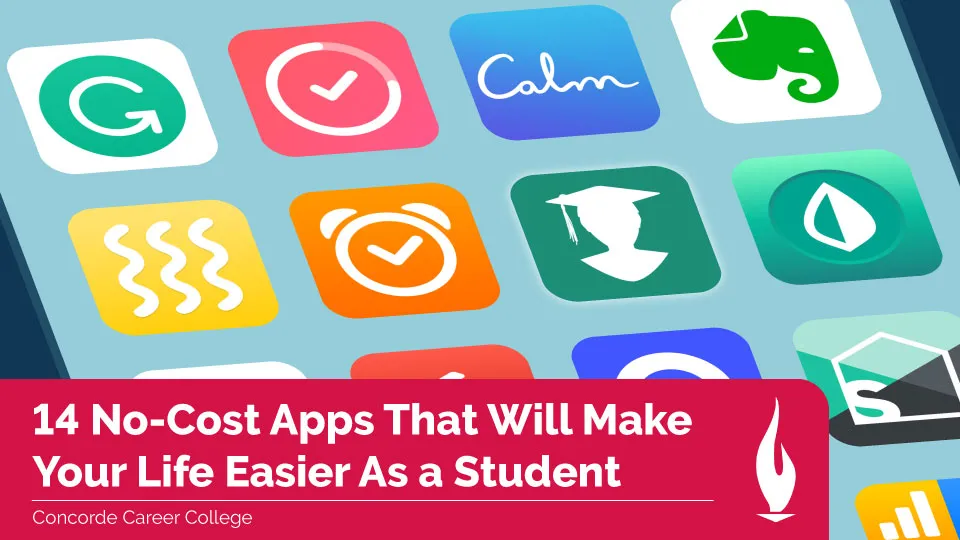
As a new student, it may take time for you to design a routine for attending classes, studying, and enjoying your free time. Adapting to your school environment can enable you to identify what you need to achieve your academic goals. Explore common mistakes new students make so you can minimize distractions and remain productive in your classes.
#1- Refusing To Ask Questions in Class
The instructor often introduces a topic to you during class. Before the lecture ends, you may have an opportunity to ask a question and receive an answer that can help you comprehend the material. Don't be afraid to pose a question if a part of the lecture is confusing you. Avoiding asking for help can make it more challenging for you to learn a new principle. As the course progresses and you encounter more advanced topics that require your understanding of previous topics, you can be at risk of falling behind.
Keep in mind that the instructor is there to help you understand what they're teaching. Plus, your initiative to ask a question may inspire an answer that enables your classmate to better grasp the material as well. Identify what part of the concept you would like the instructor to clarify, which can allow you to make your question as specific as possible. Consider writing down your questions so you can remember them when the instructor facilitates an open discussion.
You can wait until the end of class to ask your question in a one-on-one interaction with the instructor if that makes you feel more comfortable. Your classmates can also provide clarification on the material from the lecture. Start a conversation with a fellow student to find out if they comprehended the concept that confused you. Their interpretation may offer a perspective that you didn't think of, and now you can be confident that you're on the right track.
#2- Being Unwilling To Take Notes
The concepts that an instructor emphasizes during a lecture may make sense to you at that moment. However, when you're studying for a test a few weeks later, it may be challenging for you to remember those concepts if you didn't write them down in class. That's why it's essential to develop strong note-taking skills. Your notes can include important details about the topic. For example, you can contrast two similar principles so you can differentiate between them. While you listen to your instructor's discussion, you can paraphrase technical definitions in your notes in order to refer to them easily.
The instructor may require you to read chapters in your textbook before the lecture. Consider taking notes on those chapters and bringing the notes to class so you can expand on your thoughts during the instructor's presentation. Use highlighters or underline words in your notes to remind yourself of the areas that require further reading after class. You can also write down the names of resources that the instructor discusses so you know where to go to deepen your understanding of the material.
Organize the information in your notes to make it easier to review. Use an outline format, which includes headings, subheadings, and bullet points, to group details together so you know how the concepts relate to one another. Consider using color coding to distinguish groups and start a new document or page when the instructor introduces new material in the same lecture. Your notes can also include diagrams that can benefit you if you're a visual learner. Another way to take notes is to write down phrases. This is a quick way to relay information while listening to the instructor.
#3- Skipping Study Sessions After Class
The time you spend studying outside of the classroom can impact how well you understand the course material. Although you may have grasped the concepts during the lecture, you can still host a study session to reinforce what you learned. Take a few moments to review the definitions of new terms, for example, and think about how those principles apply to the real world. Use the notes you took during class to discover areas you need more clarification on so you can remember to ask questions to your instructor later.
Studying in the days leading up to a test instead of waiting until the day before can make it easier for you to recall the material. The concepts may also have a lasting impression on you even after you pass the test, which can be essential as you continue through the course or enroll in an advanced class. Attending each of your lectures is essential to your success as a student. Still, remembering to study after class can increase your confidence that you're fully grasping the material and know its importance to your career.
#4- Ignoring Available Tools and Resources
As a student at Concorde Career College, you have access to a variety of tools and resources that can help you succeed in and outside of the classroom. For example, you can determine if you're eligible for financial aid or a scholarship, which can help with the costs of your schooling so you can remain focused on your assignments. If you're working full-time, consider scheduling virtual or evening classes to better balance your education and work responsibilities.
Take advantage of career services so you can receive guidance on finding your desired health care job after you graduate. You can learn how to communicate your skills, education, and work experience on your resume to show employers that you're qualified for the role. You can also participate in mock interviews, where you can practice communicating why you're an ideal fit for a job and respond precisely to interview questions.
Speak with Concorde advisors to gain exposure to employment opportunities in the medical field. You can discuss the type of job you're seeking, and the advisors can identify an available position that aligns with your interests and qualifications. If you want to relocate after graduation, you can also work with professionals in the Student Affairs Department. While concentrating on your classwork is central to your academic growth, it's also important to think about how to leverage your education so you can enter the industry and start your career. Explore campus resources as you become the professional you want to be.
#5- Failing To Get Enough Sleep
Your schedule as a student may be busy. You may spend several hours throughout the week attending classes and even more hours studying the course material outside of class. You may also carve slots in your schedule for practicing your hobbies, spending time with your family and friends, and fulfilling shifts at your job. Despite the length of your to-do list, it's essential that you get an adequate amount of sleep every night.
With a good night's rest, you can feel refreshed in the morning, which can strengthen your ability to pay attention in class and concentrate on the work you're producing. Healthy sleeping habits can also have a positive influence on your mental and physical health. If your back aches from sitting at a desk for several hours, you can go to sleep to rest your body so you can feel better when you wake up. If you're feeling overwhelmed about your assignments, then go to bed to alleviate stress and help you better plan your workflow with a clearer mind.
Prioritize your sleep the same way you prioritize your classwork. When it's time for your slumber, eliminate distractions so you can fall and stay asleep and recharge effectively. Put away your smartphone so the bright screen and notifications don't distract you. Make sure your resting area is up to your liking. For example, you may prefer a certain temperature in the room or a room that is quiet so you can relax your mind. Aim to sleep for at least seven hours to prepare for what the next day has in store for you.
#6- Missing Deadlines for Classwork
Earning a satisfactory grade in a course may depend on your ability to submit quality work by a deadline. As a student, you may enroll in multiple classes, each of which delivers assignments with due dates that may overlap with one another. To ensure you meet every deadline on your schedule, it's important that you stay organized so you can give yourself enough time to work on your assignments, ask clarifying questions if necessary, and turn your work in promptly.
At the beginning of the term, use the course schedule on the syllabus and create your own outline of all the deadlines for your assignments in each class. Next, add prior engagements to that schedule so you know how your personal life aligns with your school obligations. For example, you can note when you have to work or the date you're attending a special event. If any of those times conflict with a deadline, you know to finish your assignment early so you're not at risk of missing the due date.
It's also important to resist procrastination (1). Take advantage of the time you have between deadlines to work on your assignments in advance. This will help you to avoid having multiple projects you need to work on that are due on the same day which can cause stress and decrease the quality of your work. Review the instructions on each assignment to make sure you understand what the instructor expects of you.
Don't underestimate how long it will take you to finish each task. Set aside a time slot that allows you to put forth your best effort. Learn to prioritize tasks with earlier deadlines so you're in control of your schedule and understand the material. The more projects you cross off your to-do list, the more you'll discover about your approach to classwork, which can help you design a workflow and schedule that works best for you. For instance, if you realize that you're most productive during the early evening, you can plan to work on your assignments at those times.
#7- Allowing Social Media To Distract You
Social media is a powerful tool that can enable you to stay connected with your community. You can find the profiles of your classmates and send direct messages to ask about class assignments, for example. Leaders of campus organizations often use social media platforms to promote upcoming educational events and volunteer opportunities that may appeal to you. If you're looking for information on a certain topic, you can read internet commentary to find authentic perspectives and real-time updates on current events. You can also use social media to build relationships with professionals in your field.
However, social media activity can also distract you from your classwork. Limit the time you spend watching funny videos from your favorite content creators. Consider inputting timers on the applications on your smartphone to remind you when it's time to log out and focus on your studying. You can also place your phone away from your study area or in another room so you don't feel tempted to surf the internet when you planned to complete an assignment. When you've finished the tasks on your to-do list, you can reward yourself by tapping through pictures and videos on your feed.
Your social media activity can represent who you are as a student and aspiring professional. Be mindful of the content you endorse by liking, sharing, and commenting. Refrain from reposting content that includes obscene language and activities. Make sure that your profile emphasizes positive qualities about yourself and doesn't give your classmates, instructors, and potential employers the wrong impression (2). Before you share a picture or update a status, think about how your followers and the public may interpret it. If there's a chance the perception may be negative, then consider leaving it off the internet.
As you progress through your educational journey, you can learn to overcome challenges and obtain a skill set that can set you apart when it's time to enter the job market. We also put together a list of apps for students to help you along your journey. Work to solidify your future and prepare for your career by being an exemplary student. By avoiding making the aforementioned mistakes, you can better adjust to your life in the classroom.

Footnotes:
"7 mistakes to avoid as a first-year student in the university," Poscholars, https://poscholars.com/7-mistakes-to-avoid-as-a-first-year-student-in-the-university/
"Seven College Freshman Mistakes To Avoid," The Haven at College, https://thehavenatcollege.com/college-freshman-mistakes/
Take The Next Step Towards a Brighter Future
We have a Concorde representative ready to talk about what matters most to you. Get answers about start dates, curriculum, financial aid, scholarships and more!




